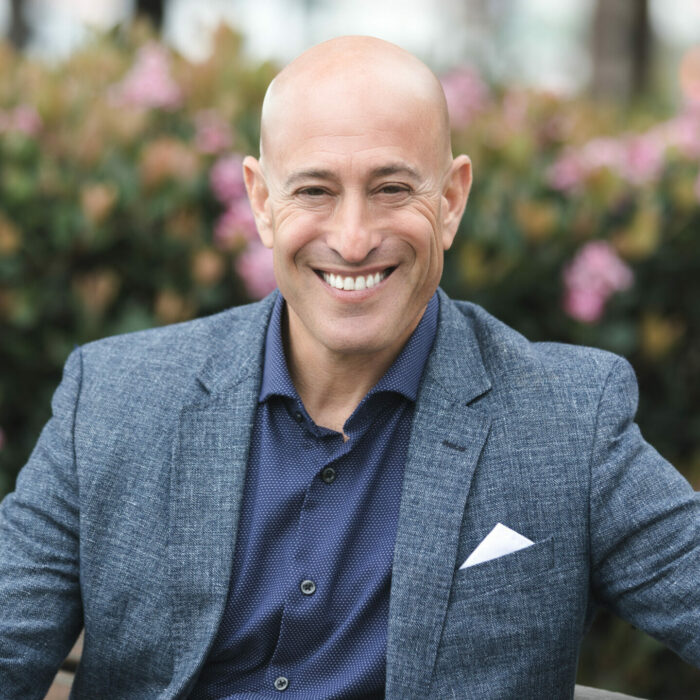
Dr. Sanjay Gupta: What Science Says About Cannabis
CBD and THC are being used more than ever for arthritis and joint pain. But does microdosing cannabis really help with inflammation, and what should…
Thought Leader: Sanjay Gupta

There is one life-changing question at the center of reframing successfully.
Rapid change is an unavoidable variable in the equation of life. We often try to avoid change or even stop it, which typically ends up being more disruptive than the change itself. Just like with any equation, you cannot “solve for X” by ignoring it or removing it. That variable “X” is a paramount part of the equation, necessary to being able to find the solution.
Growth always begins with a decision to either change or accept change that is happening around us. At a time when many of us are in a state of anxiety about what the future holds, it’s important to understand how people and even organizations can “learn how to learn” by seeing situations as they are and asking one very important question. Much like the equation of life allegory above, the potential always exists in the ability to see the equation in its true form and open your mind to solutions.
When it comes to building resilience on an individual or organizational level, we’ve got to learn how to reframe. Reframing is a specific skill set of the mind where you are capable of taking a situation, seeing it realistically and then framing the situation with a simple, life-changing question: What is the creative opportunity now?
Reframing doesn’t mean that what happened yesterday isn’t important or relevant, but that no matter what happened yesterday, there is a creative opportunity we can seize.
To be able to seize it, we have to create space to see it.
This simple reframe, in the form of a question, allows us to take stock of the situation that currently exists — to really see it and to find meaning in it. My grandmother used to preach something similar when I was a child by always reminding me to, “Find the little gems.” What she meant by that, and what I teach with reframing, is that there is always growth and opportunity, but we often need to be reminded to look for those.
By human nature alone, we are predicting and protecting — at least we think we are. Our brain sees change and triggers fear, uncertainty and anxiety, yet it’s almost always unfounded. The better option is to use the question I shared above, which is the same question my wife has poured into me for 20 years and the same question I have watched change so many lives and corporate cultures.
Seek growth and opportunity over running from change and succumbing to fear.
If you’re looking to build more resilience into your corporate culture, ask this question and let your teams sit with it. Give them something to chew on, and give them buy-in and space to lean into this new mindset of reframing and resilience.
Simultaneously, what you will see happen with this pivot is that your teams will begin to seek better outcomes, regardless of the situation. You are now giving them permission to be critical thinkers and strategic problem solvers — all the while validating their perception of each situation and their ability to find opportunity.
There are so many moments we miss in life because we are not looking at the full picture or a clear version of that picture. Perception truly does alter reality, and so there are moments we might perceive as negative and then we miss out on experiencing that moment as a pivot point or moment of growth.
Choosing to see something as an opportunity allows you to grasp the full picture rather than just one small angle through a blurry lens. When your teams learn to reframe, you will see them begin to flourish in times of change. They are looking for positive outcomes, habitually, rather than waiting around or leaning into negative emotional responses.
This is the beginning of a wonderful path for your organization if you commit to the simple act of creating space and asking this simple question. By instilling reframing as a skill set amongst your teams, you are empowering them to lean into change, to use it, to find the value in the change and to use that value to accelerate forward.
When an elite athlete speaks on reframing, it perks my ears because I know their mindset is a determining factor in how well they show up to perform each day. So, when Derek Jeter was asked about missing 7 out of 10 hits, his response was pretty epic. Jeter said, “I am due for a hit and if I can get a hit just 3 out of 10 times, I will be in the Hall of Fame.”
Not only was he thinking of the future rather than the here and now, but he was also reframing toward the positive and looking at the full equation — not just one variable.
“What is the creative opportunity now?” is the simplest, most powerful question to find meaning in the moment while creating a path to the future.
Dr. Sanjay Gupta: What Science Says About Cannabis
CBD and THC are being used more than ever for arthritis and joint pain. But does microdosing cannabis really help with inflammation, and what should…
Thought Leader: Sanjay Gupta
Lisa Bodell: Culture isn’t what you say, it’s what you do
When it comes to setting the a tone for your organization, actions speak louder than words. In a Fast Company article, Lisa Bodell argues that…
Thought Leader: Lisa Bodell
Niall Ferguson: What’s Trump’s plan with Iran, and beyond?
Is there a deeper strategy underlying President Trump’s actions? Dan is joined by historian, Free Press columnist, CBS contributor, and Senior Fellow at Hoover Institution…
Thought Leader: Niall Ferguson

